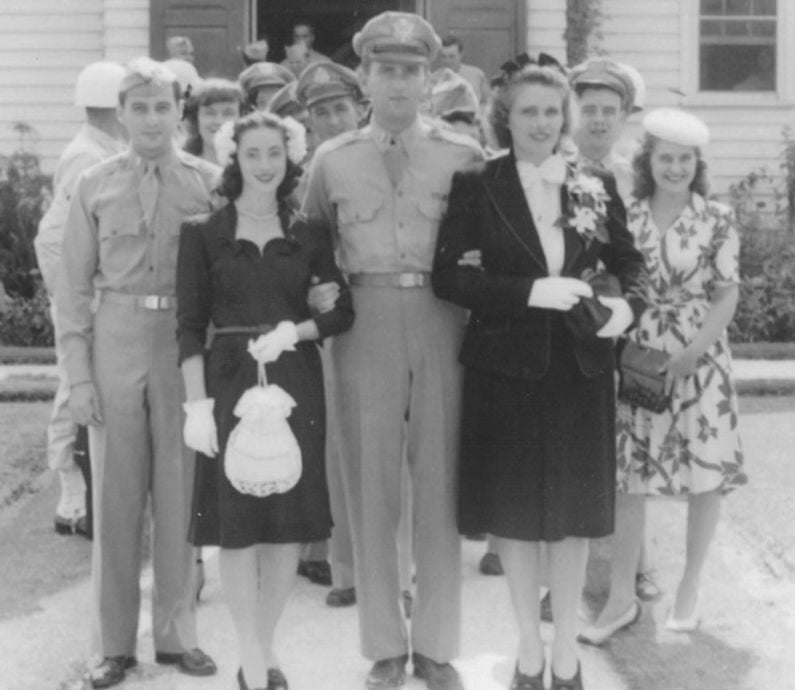Lives Not Lived: The Real Meaning of Memorial Day
 I came across a 1944 wedding photo in the album where my father preserved his memories of serving in the 15th Air Force in World War II. It was taken at an Army Air Corps base in Texas where hundreds of B-17 crews finished their training before heading to Italy to join the fighting. He’s the best man, standing to the left.
I came across a 1944 wedding photo in the album where my father preserved his memories of serving in the 15th Air Force in World War II. It was taken at an Army Air Corps base in Texas where hundreds of B-17 crews finished their training before heading to Italy to join the fighting. He’s the best man, standing to the left.
It was surely a happy occasion, but the mood didn’t last. The groom was killed in action six weeks after the picture was taken.
I think about this photo every year on Memorial Day. It represents, to me at least, the true meaning of the day. Memorial Day is about remembering those who gave their lives in service to their country. The holiday also presents an opportunity to think about the lives they never got to live.
My father survived the war (barely), and came home to a free college education, medical school, and a long, successful career. He lived to be 92, was married for 55 years, and had two sons and six grandchildren. His Air Force buddy, the groom, never got that chance.
There’s a concept in Jewish law that a murderer is not just responsible for taking a single human life. He’s also on the hook for the children his victim might have had, along with their descendants. Given the typical rate of human reproduction, a murderer could be punished for destroying thousands of lives that would have unfolded over the ensuing centuries.
So it is with war deaths. What kind of family might my father’s friend have had? How many children? How many grandchildren? What could they have accomplished in life? What good could they have done? We’ll never know, because they never got to live. That’s one of the worst effects of war, a profoundly sad sacrifice.
It’s also a sacrifice that we, as Americans, are less and less aware of as time goes on. At least, it is for me and my cohort—people who came of age after Vietnam, when the armed forces dropped the draft and became an all-volunteer force. I was not asked to serve, and I chose not to.
The all-volunteer force has enabled me and millions of others to enjoy fulfilling lives while other people take the risks inherent in military service. It’s a deeply unfair system, one that tends to send the children of the poor into combat while the rest of us sit around and live the American dream, such as it is. The losses are unbalanced, in societal terms, and I suspect that the resentments felt by the families of those whose lives were cut short are behind some of today’s most intractable political conflicts.
Recruiting volunteers to serve also seems to have empowered our leaders to deploy military force without having to face much public accountability. The country can engage in exceedingly long and costly wars that have questionable strategic justification. Who cares? Most voters don’t. It’s not like their kids are putting their lives on the line. (And, it’s not like they raised taxes to pay for these adventures. Our wars are fought with borrowed money these days.)
For some, this injustice results in guilt, an emotion that I think is sometimes behind those awkward USO “We thank you for your service” remarks we hear on the PA system at the airport. Thank you for your service, because your service means I never had to take the risk.
Some people do care, though. If your brother or sister died in service to their country, you’re keenly aware of the life they never got to live. We should care, too.
